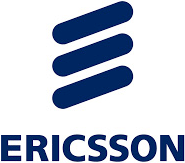Patient Satisfaction Surveys Should Focus on Meaningful Information
In today’s highly competitive market, tracking patient satisfaction levels is absolutely critical to practice success. The patient satisfaction survey is an increasingly essential and useful tracking tool. Meaningful customer satisfaction surveys designed for a patient target a variety of operational issues ranging from wait time to physician style and demeanor.
While a patient satisfaction survey must be comprehensive, it should be short enough so participation is encouraged. These types of customer surveys should contain no more than 10 to 15 questions and take no more than 5 to 10 minutes to complete. While the carefully worded survey questions should serve to uncover most of the desired information, it is important to leave room for general comments with open-ended questions. This comment section can produce significant information, frequently flagging areas of concern not covered in the question section of the survey.
Administer the survey on an ongoing basis, issuing forms daily and tabulating data regularly. This prevents staff from selecting only patients known to be satisfied with the practice.
If possible, obtain your patient survey from a consulting firm that offers an overall patient satisfaction program with benchmarking against like-practices.
A meaningful patient satisfaction survey will obtain information in the following areas:
Telephone/communication etiquette: Is staff meeting the information needs of patients and delivering the information in a clear, courteous manner?
Appointment times: Were patients able to make an appointment to see the doctor within a reasonable amount of time? Within convenient time frames?
Wait time: What is the average wait time? What do patients feel is an appropriate wait time?
Staff knowledge levels: Does staff know what they are talking about?
General staff attitude: Is the patient the first priority?
Physician style/demeanor: Did the physician staff meet the patient’s needs/expectations?
Surgical/procedure information: Did surgery patients feel they received adequate information and options prior to scheduling their case?
Billing and payment experience: Was a payment option available that met the patient’s needs?
Willingness to refer: Will the patient refer your practice to a family member, friend, or coworker? Why or why not?
Overall clinical experience: Would the patient return for additional procedures, if necessary?




























 By submitting this form you agree to our
By submitting this form you agree to our